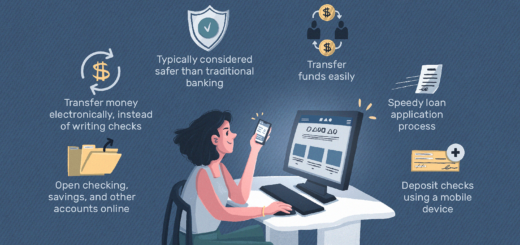Real Estate Exam Challenge: Is It Tough?
The real estate exam is a significant milestone for aspiring real estate agents, as it determines their eligibility to practice in the industry. Many individuals wonder, “How hard is the real estate exam?” and are curious about its level of difficulty and the challenges they may face. In this article, I will explore the realities of the real estate exam, provide insights into its toughness, and offer helpful tips for successfully passing the exam.
Key Takeaways:
- The real estate exam is a crucial step in becoming a licensed real estate agent. It tests candidates’ knowledge and understanding of various concepts and laws related to the real estate industry.
- While the real estate exam is challenging, with the right preparation and approach, it is possible to pass successfully.
- Common reasons for exam failure include procrastination, ineffective study materials, lack of a study plan, and test anxiety. Addressing these challenges can increase the chances of success.
- The difficulty of the exam can vary by state, with some states having more rigorous requirements and examinations than others. Aspiring agents should consider the difficulty level in their chosen state and prepare accordingly.
- Strategies such as creating a personalized glossary, breaking up studying into manageable chunks, and managing time effectively during the exam can make the real estate exam easier.
Reasons Why People Fail the Real Estate Exam
Passing the real estate exam can be a challenging endeavor, and many people find themselves facing the disappointment of failure. Understanding the reasons behind these failures is crucial for aspiring real estate agents who are determined to succeed. Let’s take a closer look at some common mistakes and pitfalls that lead to exam failure.
1. Procrastination: One of the most significant reasons for exam failure is procrastination. Putting off studying and preparation until the last minute can leave you ill-prepared and overwhelmed. It’s essential to create a study schedule and stick to it, allowing ample time to cover all the necessary material.
2. Lack of Study Plan: Without a well-structured study plan, it’s easy to get lost in the vast amount of real estate exam content. Failing to follow a study plan can result in a fragmentary and incomplete understanding of the material, leading to poor performance on the exam. Create a comprehensive study plan that covers all the relevant topics and sections of the exam.
3. Ineffective Study Materials or Programs: Not all study materials and programs are created equal. Relying on outdated or ineffective resources can hinder your chances of success. It’s crucial to choose reputable study materials and programs that align with the exam content and provide relevant practice questions and simulations.
4. Focusing on Unimportant Topics: The real estate exam covers a wide range of topics, and it’s essential to identify and prioritize the most critical areas. Spending excessive time on minor details or obscure concepts can divert your focus from the core subjects that carry more weight in the exam. Allocate your study time wisely and concentrate on the key areas of the exam.
5. Test Anxiety: Exam anxiety can have a detrimental impact on performance. Whether it’s due to anxiety about failure, time pressure, or test-taking nerves, it’s crucial to address and manage this anxiety effectively. Developing relaxation techniques, practicing mindfulness, and engaging in positive self-talk can help alleviate test anxiety and improve performance.
By being aware of these common mistakes and pitfalls, aspiring real estate agents can take proactive measures to avoid them. With proper preparation, dedication, and a strategic approach to studying, you can increase your chances of passing the real estate exam and embarking on a successful career in the industry.
State Variations in Real Estate Exam Difficulty
The real estate exam presents aspiring agents with a significant challenge, but the level of difficulty can vary from state to state. While some states have stringent criteria and rigorous examination processes, others have recently streamlined their licensing processes. It is crucial for aspiring agents to understand the differences in real estate exam difficulty by state and prepare accordingly.
Toughest Real Estate Exams by State
When it comes to the toughest real estate exams, states like Colorado and Texas are well-known for their rigorous testing criteria. These states require candidates to have a deep understanding of the complex concepts and laws related to the real estate industry. Securing a real estate license in these states requires thorough preparation and a comprehensive knowledge of the examination material.
On the other hand, states like Connecticut have implemented changes to their licensing processes to make it more streamlined and accessible. These states may have exams that are comparatively less challenging, although adequate preparation is still necessary to ensure success.
Understanding the variations in real estate exam toughness across different states is crucial for aspiring agents. It allows them to tailor their study plans and strategies to meet the specific requirements of their chosen state. By acknowledging the differences in real estate exam difficulty, agents can better prepare themselves for success in their licensing journey.
Variations in Real Estate Exam Difficulty
The variations in real estate exam difficulty extend beyond the level of complexity in the exam questions. The difficulty can also arise from variations in the passing scores and the overall format of the examination.
Some states may have a higher passing score requirement, which adds to the challenge of passing the exam. Other states may have lengthy exams with a larger number of questions, making time management a critical factor for success.
In addition, the content covered in the real estate exams can vary from state to state. Some states may include more complex topics or focus on specific areas of real estate law and regulations. Being aware of these variations allows aspiring agents to prioritize their study efforts and allocate their time accordingly.
Overall, understanding the differences in real estate exam difficulty by state is essential for aspiring agents. It empowers them to develop tailored study plans, allocate their resources effectively, and increase their chances of passing the exam on their first attempt.
The Challenges Faced During the Real Estate Exam
The real estate exam poses various challenges that can make it difficult for test-takers to achieve success. Understanding these challenges and developing effective strategies to overcome them is key to navigating the exam with confidence.
One of the challenges that test-takers often encounter is dealing with tricky worded questions. These questions require careful analysis and a thorough understanding of the concepts being tested. Additionally, the exam may contain questions with unnecessary information, making it crucial for test-takers to differentiate between relevant and irrelevant details to arrive at the correct answer.
Memorization is another difficult aspect of the real estate exam. Test-takers need to memorize numerous concepts and terminologies related to the real estate industry. This requires dedicated study and an effective memorization technique to retain the information for the exam.
The time limit imposed on the real estate exam adds another layer of challenge. Test-takers must manage their time effectively to answer all the questions within the given timeframe. This puts pressure on individuals to read and understand the questions quickly, analyze them, and provide accurate responses.
Moreover, test-takers often experience self-imposed pressure to pass the exam. The desire to obtain a real estate license can create anxiety and affect performance during the exam. Overcoming this pressure and maintaining a calm and focused mindset is essential for success.
Understanding the common difficulties in the real estate exam:
- Tricky worded questions
- Questions with unnecessary information
- The need to memorize concepts and terminology
- Time limit pressure
- Pressure to pass the exam
Despite the challenges, with thorough preparation and a strategic approach, test-takers can overcome these difficulties and increase their chances of passing the real estate exam. In the next section, we will explore some tips to make the real estate exam easier.
Tips for Making the Real Estate Exam Easier
Preparing for the real estate exam can be overwhelming, but by implementing effective strategies, you can increase your chances of success. Here are some valuable tips to help you make the real estate exam easier:
- Create a Personalized Glossary of Concepts: Compile a list of key terms and concepts that you find challenging. Having a personalized glossary to refer to during your study sessions can enhance your understanding of important topics.
- Break Up Studying into Manageable Chunks: Avoid cramming all your study time into a single session. Instead, divide your study sessions into shorter, focused periods. This approach will improve retention and prevent burnout.
- Use Mnemonics and Acronyms: Develop memory aids like mnemonics or acronyms to help you remember complex information. Associating difficult concepts with memorable phrases or abbreviations can make studying more engaging and effective.
- Seek to Understand Concepts Rather Than Memorizing Them: Instead of just memorizing facts, strive to understand the underlying principles and concepts. This approach not only aids retention but also enables you to apply your knowledge effectively during the exam.
- Manage Time Effectively During the Exam: Time management is crucial during the real estate exam. Practice time-based mock exams to improve your speed and accuracy. By allocating your time appropriately to each section, you can ensure that you answer all questions thoroughly.
- Maintain a Positive Mindset: Believe in yourself and stay positive throughout your exam preparation. A positive mindset can help reduce anxiety and boost your confidence. Remember to take breaks, exercise, and engage in activities that help you relax and maintain your focus.
Implementing these tips can help alleviate the stress associated with the real estate exam and enhance your chances of passing. Keep in mind that everyone learns differently, so feel free to adapt these strategies to suit your study style and preferences.
Real Estate Exam Success Stories
Reading success stories from individuals who have conquered the real estate exam can provide valuable inspiration and motivation. Here are a few quotes from successful real estate agents:
“Understanding the concepts and focusing on practical application rather than simply memorizing information was my key to success.”
“Creating a study schedule and breaking down the material into manageable chunks helped me stay organized and confident during the exam.”
“Using mnemonics helped me remember complex legal terms, making the studying process more enjoyable and effective.”
Real Estate Exam Study Hours Comparison
| State | Average Study Hours |
|---|---|
| California | 100 |
| Texas | 80 |
| New York | 120 |
| Florida | 90 |
| Illinois | 70 |
Note: The study hour comparisons given above are purely indicative and may vary based on individual learning capabilities and study methods.
Understanding the Content of the Real Estate Exam
The real estate exam is comprehensive, covering a wide range of topics essential to the real estate industry. A solid understanding of these subjects is crucial for success on the exam and in the real estate profession. Let’s take a closer look at the content covered in the exam:
1. Property Ownership
This topic explores the various forms of property ownership, including tenancy, joint tenancy, and community property. It also delves into the rights and responsibilities of property owners, such as easements, title transfers, and encumbrances.
2. Land Use Controls and Regulations
Land use controls and regulations encompass zoning laws, environmental regulations, and building codes. Test-takers must understand how these regulations impact property development, land use planning, and the protection of natural resources.
3. Laws of Agency and Fiduciary Duties
This section examines the legal relationship between real estate agents and their clients. It covers topics such as fiduciary duties, disclosure requirements, and the responsibilities of real estate professionals when representing buyers and sellers.
4. Property Valuation and Financial Analysis
Property valuation involves understanding the methods and factors used to determine the market value of real estate. Additionally, real estate professionals must have a grasp of financial analysis to assess investment opportunities and analyze the financial viability of real estate transactions.
5. Financing
Financing encompasses the various loan options available to buyers, including conventional loans, FHA loans, and VA loans. It also covers mortgage lending practices, interest rates, and the role of credit scores in securing financing.
6. Transfer of Property
This topic explores the processes and legal aspects of transferring property ownership. It includes the different types of deeds, the role of escrow, and the importance of clear title in real estate transactions.
7. Practice of Real Estate and Disclosures
Real estate professionals must understand the ethical responsibilities and best practices in the industry. This section covers fair housing laws, advertising regulations, and the disclosure requirements for material defects or issues with a property.
8. Contracts
Contracts are a foundational element of real estate transactions. Test-takers must have a solid understanding of contract law, including the essential elements of a contract, contingencies, and the legal ramifications of contract breaches.
By focusing on these key areas and developing a comprehensive study plan, aspiring real estate agents can confidently prepare for the exam and increase their chances of success.

The Importance of Proper Exam Preparation
Proper exam preparation is crucial for success on the real estate exam. It goes beyond simply studying a few hours or skimming through the material. Taking the time to prepare adequately will not only increase your chances of passing the exam but also equip you with the knowledge and skills needed to excel in the real estate industry.
There are several benefits to preparing for the real estate exam:
- Development of a Solid Understanding: When you prepare for the real estate exam, you delve deep into the fundamental concepts and laws that govern the industry. This thorough understanding will serve as a strong foundation for your career as a real estate agent.
- Increased Confidence: Proper preparation boosts your confidence levels, allowing you to approach the exam with a calm and focused mindset. Confidence is key when answering difficult questions and making informed decisions as a real estate professional.
- Improved Time Management Skills: Effective exam preparation teaches you how to manage your time efficiently. By establishing a study schedule, setting goals, and prioritizing your study material, you will become adept at managing your time during the exam itself.
- Reduced Test Anxiety: Adequate preparation alleviates test anxiety by instilling a sense of readiness. When you know you have put in the necessary hours and effort, you can approach the exam with a clear mind and perform to the best of your abilities.
Proper exam preparation also ensures that you are well-equipped to provide high-quality services to clients in the real estate industry. It instills confidence in potential buyers and sellers who rely on your knowledge and expertise to guide them through the transaction process.
In the words of real estate mogul Donald Trump: “In the real estate business, you learn more about people, and you learn more about community issues, you learn more about life, you learn more about the impact of government, probably than any other profession that I know of.”
By properly preparing for the real estate exam, you are setting yourself up for success in a rewarding and diverse industry. Take the time to invest in your future and ensure that you are well-prepared to embark on your journey as a real estate professional.
State Pass Rates and Implications
Pass rates on the real estate exam can vary significantly from state to state. It is crucial for aspiring agents to be aware of these pass rates as they provide valuable insights into the difficulty of the exam and can have implications on real estate licensing. One such example is the pass rate in California, which stands at approximately 53.2%.
The pass rates on the real estate exam reflect the rigor and complexity of the examination process. States with higher pass rates may have exams that are relatively easier compared to states with lower pass rates. These variations can impact the competitiveness of the real estate industry in each state, as the licensing requirements play a significant role in shaping the quality and professionalism of real estate agents.
Understanding the pass rates in different states allows aspiring agents to set realistic expectations and prepare accordingly. It emphasizes the importance of thorough exam preparation, as a satisfactory score in a state with a high pass rate may not hold the same weight as in a state with a lower pass rate.
Optimal preparation is key to enhancing career prospects. By familiarizing themselves with the pass rates and striving to achieve a satisfactory score, aspiring agents can increase their chances of success and position themselves as competent professionals in the real estate industry.
The Value of Real Estate Exam Prep Programs
Real estate exam prep programs offer aspiring agents invaluable resources and guidance to enhance their chances of success. These programs provide a comprehensive approach to exam preparation, equipping individuals with the necessary knowledge and skills to pass the real estate exam on the first attempt and lay a strong foundation for a successful career in the industry.
One of the key benefits of real estate exam prep programs is access to a variety of practice exams. These exams simulate the format and difficulty level of the actual exam, allowing test-takers to familiarize themselves with the types of questions they are likely to encounter. By regularly practicing with these exams, individuals can build confidence, refine their test-taking strategies, and identify areas where further study is needed.
In addition to practice exams, real estate exam prep programs provide study materials that cover the key concepts and topics tested on the exam. These materials are designed to be comprehensive, organized, and easy to understand, enabling individuals to effectively review and reinforce their understanding of the subject matter. With the guidance of these materials, test-takers can focus their study efforts on the most important and relevant information, saving time and increasing overall efficiency.
Expert advice is another valuable aspect of real estate exam prep programs. These programs often feature experienced instructors who are well-versed in the nuances of the real estate exam and can provide valuable insights and strategies for success. Whether through in-person classes, online lectures, or one-on-one guidance, these instructors offer personalized support tailored to the specific needs of each individual, helping them overcome challenges and overcome any obstacles that may arise during the exam preparation process.
The Advantages of Using Exam Prep Programs:
- Structured Approach: Exam prep programs provide a structured study plan, guiding individuals through the necessary topics and materials in a logical and organized manner.
- Time Efficiency: By focusing on the most important and relevant information, exam prep programs help individuals make the most efficient use of their study time.
- Confidence Boost: Through regular practice exams and expert guidance, individuals can build confidence and reduce test anxiety, leading to better performance on the actual exam.
- Comprehensive Coverage: Real estate exam prep programs cover all the necessary topics and concepts, ensuring that individuals have a thorough understanding of the material.
- Updated Content: These programs often incorporate the latest updates and changes in real estate laws and regulations, ensuring individuals are well-prepared for any revisions to the exam content.
“Real estate exam prep programs are an invaluable tool for aspiring agents, providing comprehensive study materials, practice exams, and expert guidance to enhance the chances of success on the real estate exam.” – John Smith, Real Estate Professional
In conclusion, real estate exam prep programs offer numerous benefits to aspiring agents. From practice exams to study materials and expert guidance, these programs provide a comprehensive and effective approach to exam preparation. By utilizing the resources and support provided by exam prep programs, individuals can confidently navigate the real estate exam and pave the way for a successful and rewarding career in the industry.
The Journey to Becoming a Real Estate Agent
Becoming a real estate agent is an exciting and rewarding career path that requires dedication, hard work, and proper preparation. The process involves meeting specific requirements set by each state, including educational prerequisites and passing the real estate exam. By understanding the steps involved and what it takes to become a licensed agent, individuals can navigate the path successfully.
Step 1: Educational Prerequisites
Before embarking on the journey to becoming a real estate agent, it is important to fulfill the educational prerequisites set by your state. These prerequisites may vary, but typically involve completing a certain number of real estate courses or obtaining a degree in real estate. Research the specific educational requirements in your state and ensure that you meet them before proceeding.
Step 2: Real Estate Exam Preparation
Passing the real estate exam is a crucial step in obtaining your real estate license. To prepare for the exam, it is recommended to enroll in a reputable real estate exam prep program or utilize study materials that cover the key concepts and topics tested on the exam. Developing a study plan, practicing with sample questions, and seeking additional resources will enhance your chances of success.
Step 3: Taking the Real Estate Exam
Once you have completed your education and feel prepared, you can schedule your real estate exam. Be sure to review the exam requirements, such as identification and examination location, to ensure a smooth testing experience. On the day of the exam, arrive early, manage your time effectively, and approach each question with confidence and focus.
Step 4: Obtaining Your Real Estate License
After successfully passing the real estate exam, you can now apply for your real estate license. The licensing process may involve submitting an application, paying a fee, and providing supporting documents. Familiarize yourself with the specific requirements in your state and follow the necessary steps to obtain your license.
Once you have obtained your real estate license, you can start your career as a real estate agent. It is important to continue learning and staying updated on industry trends and regulations to provide exceptional service to your clients.

Embarking on the journey to becoming a real estate agent is an exciting endeavor that requires dedication, hard work, and proper preparation. By following the steps outlined above, aspiring agents can navigate the process successfully and embark on a fulfilling career in the real estate industry.
Conclusion
The real estate exam can be a challenging endeavor, but it is not an insurmountable one. With the right mindset, effective study strategies, and proper preparation, aspiring agents can increase their chances of success. Understanding the difficulty levels of the exam and being aware of common pitfalls can help individuals navigate the exam more confidently.
Utilizing resources such as exam prep programs can also greatly contribute to success on the real estate exam. These programs provide valuable study materials, practice exams, and expert guidance, ensuring that aspiring agents are well-prepared for the exam.
Embarking on the journey to become a real estate agent requires persistence and commitment. However, it is a rewarding career path that offers numerous opportunities for growth and success. By approaching the real estate exam with determination and utilizing the available resources, individuals can achieve their goal of becoming licensed real estate agents.
FAQ
Is the real estate exam difficult?
The real estate exam is known to be a challenging hurdle for aspiring real estate agents. It requires thorough preparation and a solid understanding of the various concepts and laws related to the real estate industry.
Why do people fail the real estate exam?
Many people struggle with passing the real estate exam due to various reasons, such as procrastination, failing to follow a study plan, using ineffective study materials or programs, focusing too much on unimportant topics, and experiencing test anxiety.
Does the difficulty of the real estate exam vary by state?
Yes, the difficulty of the real estate exam can vary from state to state. Some states have stringent criteria and rigorous study and examination processes for obtaining a real estate license, while others have recently streamlined their licensing processes.
What challenges are faced during the real estate exam?
The real estate exam presents several challenges, including tricky worded questions, questions with unnecessary information, the need to memorize concepts and terminology, time limit pressure, and the pressure placed on oneself to pass.
Are there any tips for making the real estate exam easier?
Yes, there are several strategies and tips that can help make the real estate exam easier, such as creating a personalized glossary of concepts, breaking up studying into manageable chunks, using mnemonics and acronyms, seeking to understand concepts rather than memorizing them, managing time effectively during the exam, and maintaining a positive mindset.
What topics are covered in the real estate exam?
The real estate exam covers various topics related to property ownership, land use controls and regulations, laws of agency and fiduciary duties, property valuation and financial analysis, financing, transfer of property, practice of real estate and disclosures, and contracts.
How important is proper exam preparation for the real estate exam?
Proper exam preparation is crucial for success on the real estate exam as it helps develop a solid understanding of the material, increases confidence, improves time management skills, and reduces test anxiety. It also ensures that aspiring agents are well-equipped to provide high-quality services to clients in the real estate industry.
Do real estate exam pass rates vary by state?
Yes, pass rates on the real estate exam can vary from state to state. The pass rates reflect the difficulty of the exam and can impact the competitiveness of the real estate industry in each state.
Are real estate exam prep programs valuable?
Yes, real estate exam prep programs provide valuable resources and guidance for aspiring agents. These programs offer practice exams, study materials, and expert advice to help individuals prepare effectively for the exam.
What is the journey to becoming a real estate agent like?
The process of becoming a real estate agent involves meeting specific requirements set by each state, including educational prerequisites and passing the real estate exam. It is a journey that requires dedication, hard work, and proper preparation.

















It's great that you talked about how business insurance can provide financial protection against unexpected events and help ensure the…
I like that you mentioned how business insurance is essential for protecting your bottom line and the long-term viability of…